To protect users from online fraud, in the content of 'Weekly News' 15, 2024, from April 8 to April 14, the Department of Information Security (Ministry of Information and Communications) continues to inform people about 4 scams that are commonly used by subjects in Vietnam's cyberspace, including 3 forms of domestic online fraud and 1 common risk for global iPhone users:
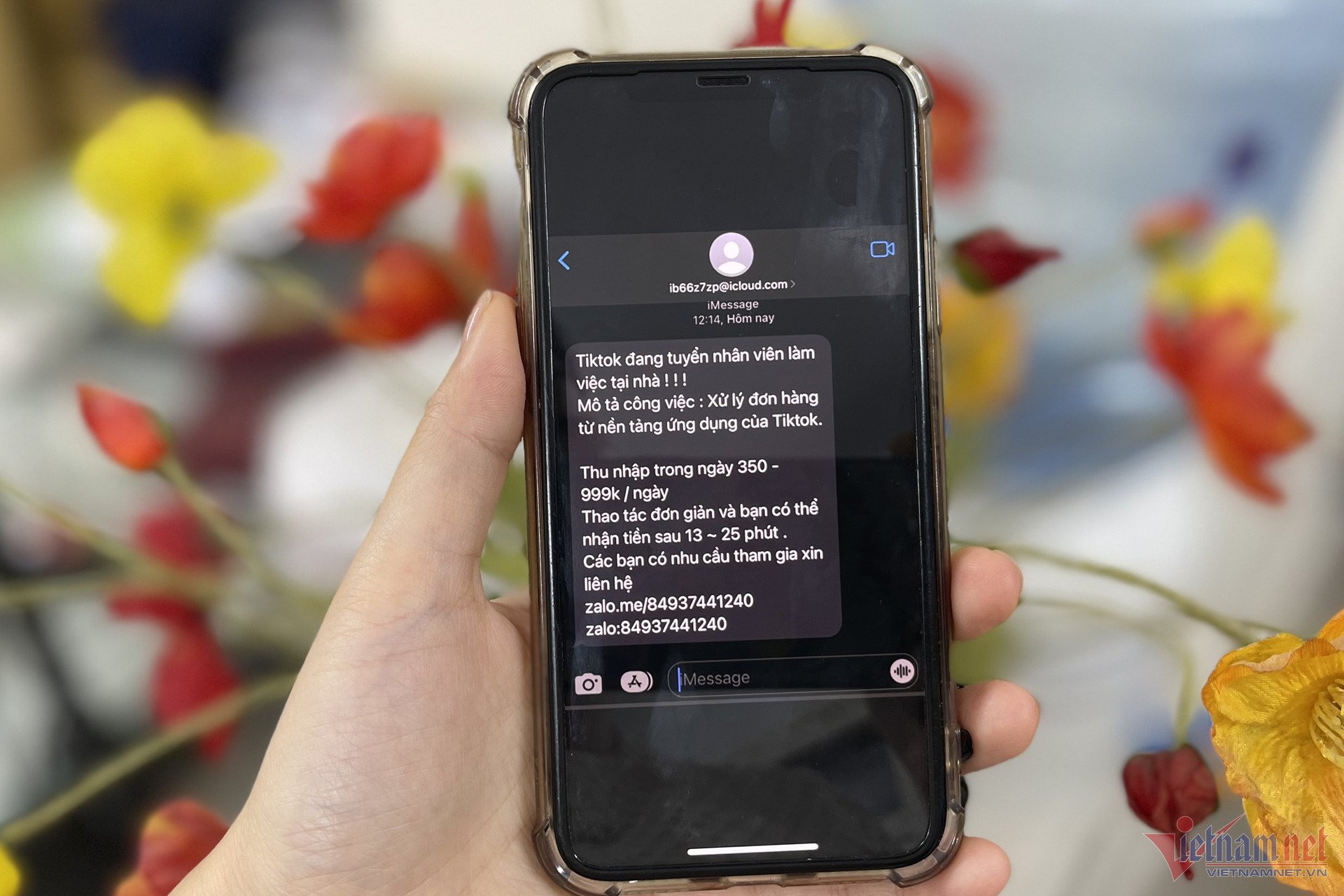
Appropriation of property by creating fake money transfer invoices
Lao Cai police have just investigated the fraudulent appropriation of property by HTN (Vinh Tuong district, Vinh Phuc). This subject took QR codes of stores and sent them to another person he knew via social networks to create fake money transfer invoices. With this trick, HTH defrauded and appropriated the property of many stores in Lao Cai city. For each fake money transfer invoice, HTN paid 70,000 VND to the person who created the fake invoice.
Regarding the above information about the scam of taking QR codes of stores to create fake money transfer invoices, the Information Security Department recommends that people: When using the transaction method via bank account, pay close attention to the transfer invoice, do not deliver goods when you have not received money in your bank account, even if the scammer provides an image of a successful transfer.
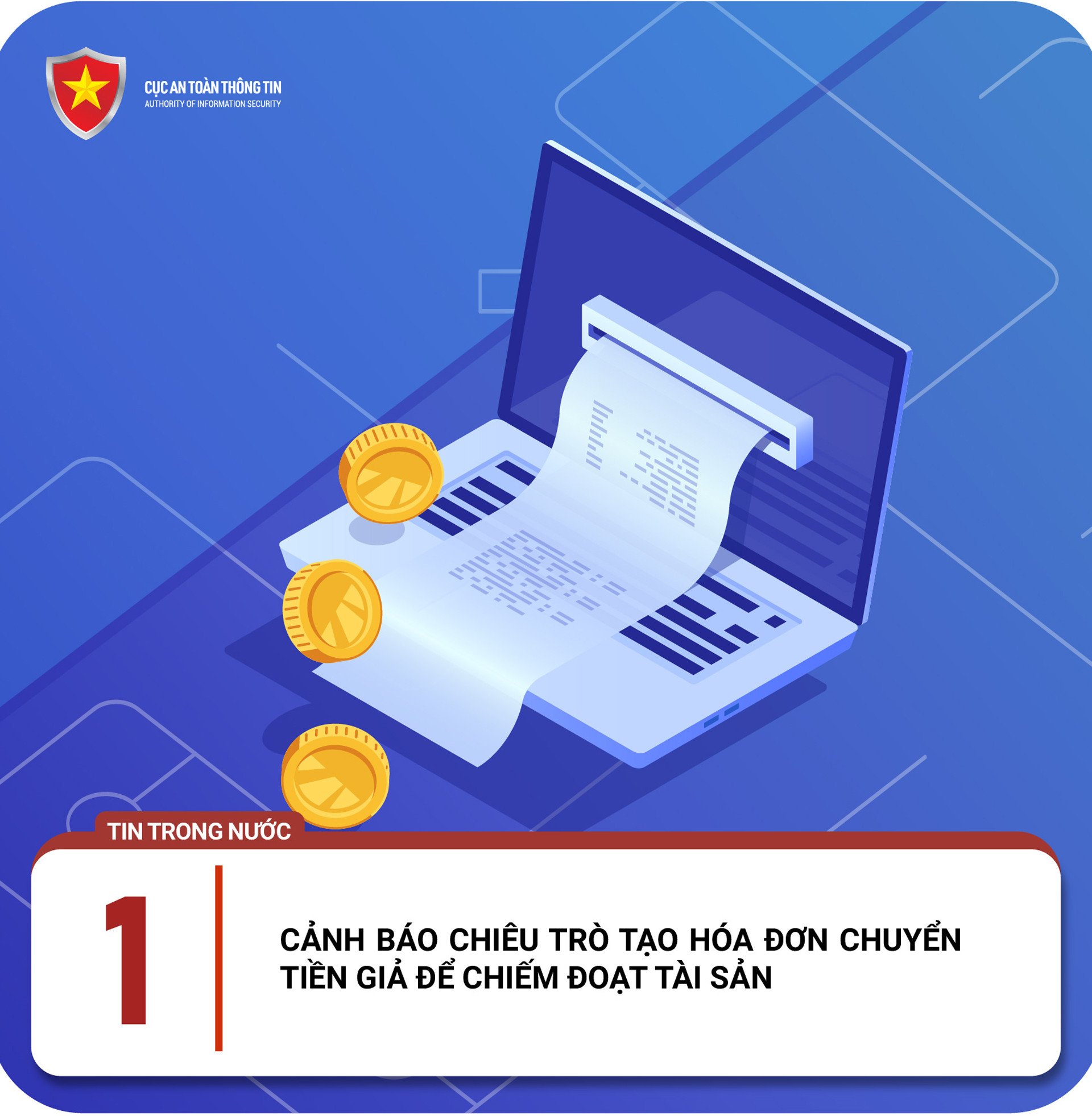
In addition, the fake 'successful transaction' image has some characteristics different from the image from the official bank in terms of color, font, time... "People should also not provide their login name, application password, OTP authentication code, email... to anyone, even if that person claims to be a bank employee or a state agency", the Information Security Department further noted.
Be careful when using online dating apps
The Information Security Department said that according to information from the Hanoi Police, recently a woman living in Ha Dong (Hanoi) was scammed by a scammer while participating in online dating. Specifically, the scammer asked the victim to log in to her account on the website mexcglobali66.com to trade stocks. After a few days of logging in, seeing that the transactions were highly profitable, the victim asked the scammer to teach her how to invest and trade stocks and was scammed out of 914 million VND.
The above case is just one of many victims of the scam, luring them into investing money when participating in online dating. The method used by the subjects is to search for victims through online dating applications with many participants such as Tinder, EzMatch, Litmatch, Hullo... and create accounts with fake information.

After making friends and gaining trust, the subject turned the conversation to finance, encouraging the victim to participate in financial investments with high returns. Authorities have recorded many cases of fraud of hundreds of millions of dong, even billions of dong.
The Information Security Department recommends that people be vigilant when using online dating apps, accepting friend requests from strangers on social networks, dating apps; Be careful when participating in online financial investment applications and websites that have many risks. In case of detecting signs of fraud, people should contact the police for timely support to resolve the case.
Cheating on selling cheap phones to appropriate billions
Ha Tinh police have just dismantled a fraud ring 'selling genuine cheap phones' with the participation of many subjects, seizing 20 computers and about 3,000 poor quality, counterfeit phones as tools for the subjects to commit crimes.

The group of scammers and appropriators sold cheap mobile phones on platforms such as Facebook, Shopee, Lazada, TikTok, and Tiki. They posted images of genuine phones with much cheaper prices than the actual price, only from 1.5 to 2 million VND, and then delivered fake products. This line scammed about 7,000 victims and appropriated a total of more than 90 billion VND.
Faced with the above situation, the Information Security Department recommends that people should only make transactions when they have confirmed the seller's reputation, ensuring that the product has complete information and is accurately described. People need to be alert when reading other buyers' reviews about product quality; should learn about the seller's warranty and refund policy to ensure their own rights.
iPhone users at risk of cyber attacks and fraud
Citing information about Apple sending a warning to iPhone users at risk of becoming victims of 'mercenary spyware attacks', the Information Security Department also said that in the past 3 years, Apple has issued a number of similar warnings. Previously, Apple called the subjects 'state-sponsored attackers'; this is the first time the company has used the phrase 'mercenary spyware'.
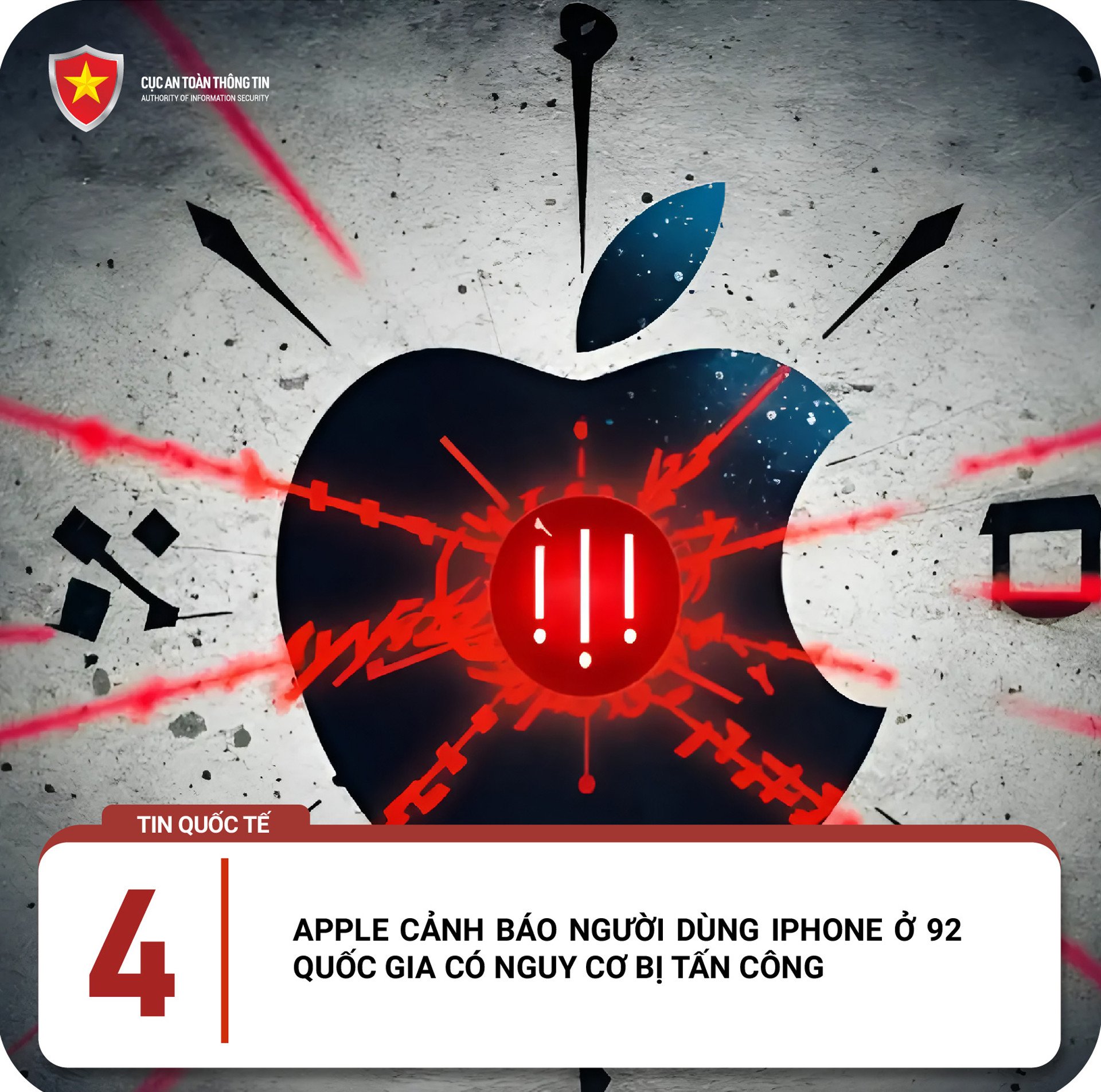
In response to the above information, the Information Security Department recommends that iPhone users in Vietnam, if they receive a warning from Apple, should contact the company's technical department for support. iPhone users who have not received a warning should also be vigilant about security risks.
Referring to the recent incident where social media users have been sharing information that if they receive a notification saying 'Apple ID Verification', their phone accounts will be taken over, the Information Security Department noted: Apple affirms that the attacks that Apple warns about have nothing to do with the 'Apple ID Verification' notification. Therefore, the Information Security Department recommends that all organizations and individuals do not post, share, disseminate or comment in agreement with fake news, untrue news, news that causes public confusion, and negatively affects security and order.

Foreigner arrested for using fake BTS station to spread scam messages
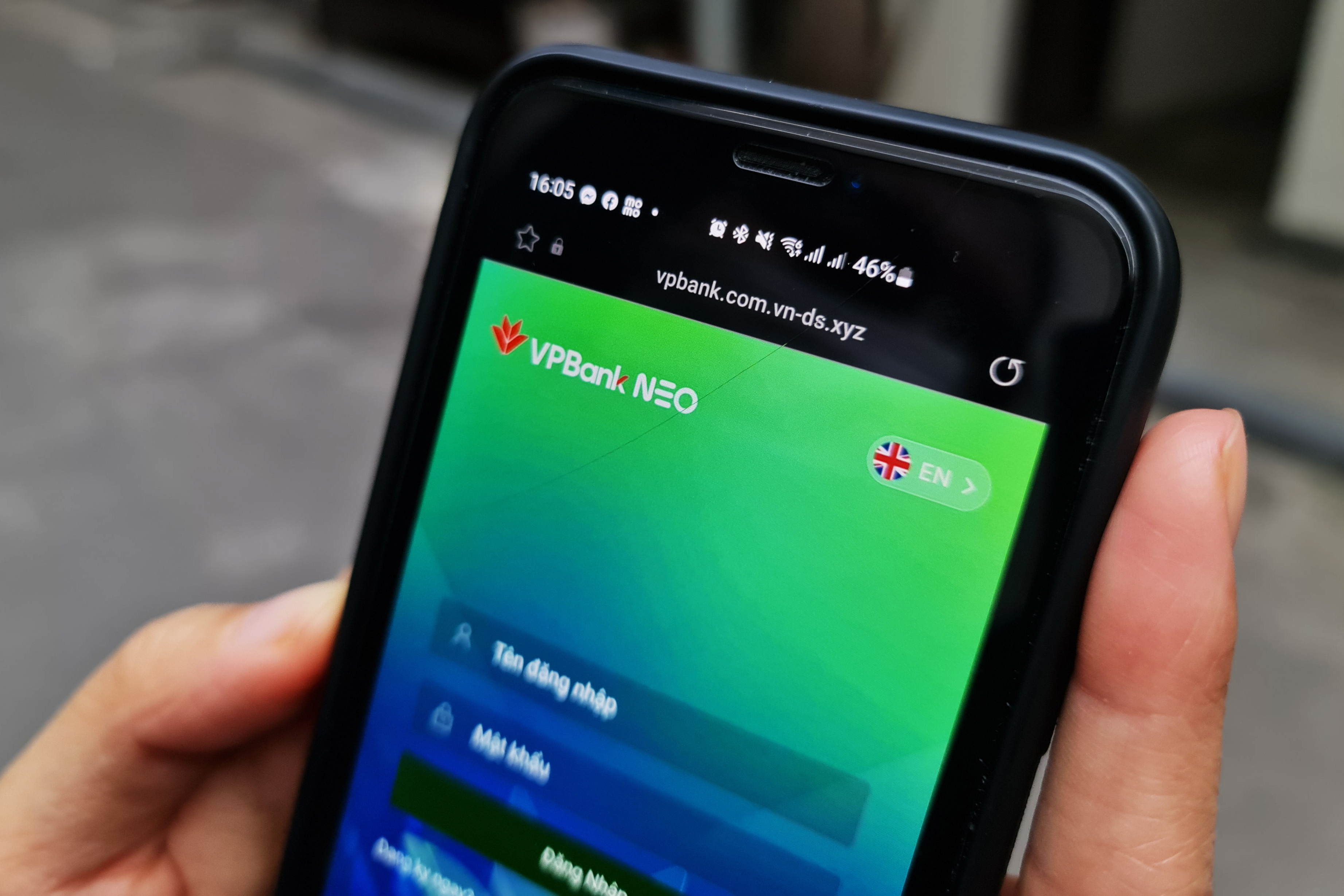
Online fraud in Vietnam increased sharply in the first 3 months of the year
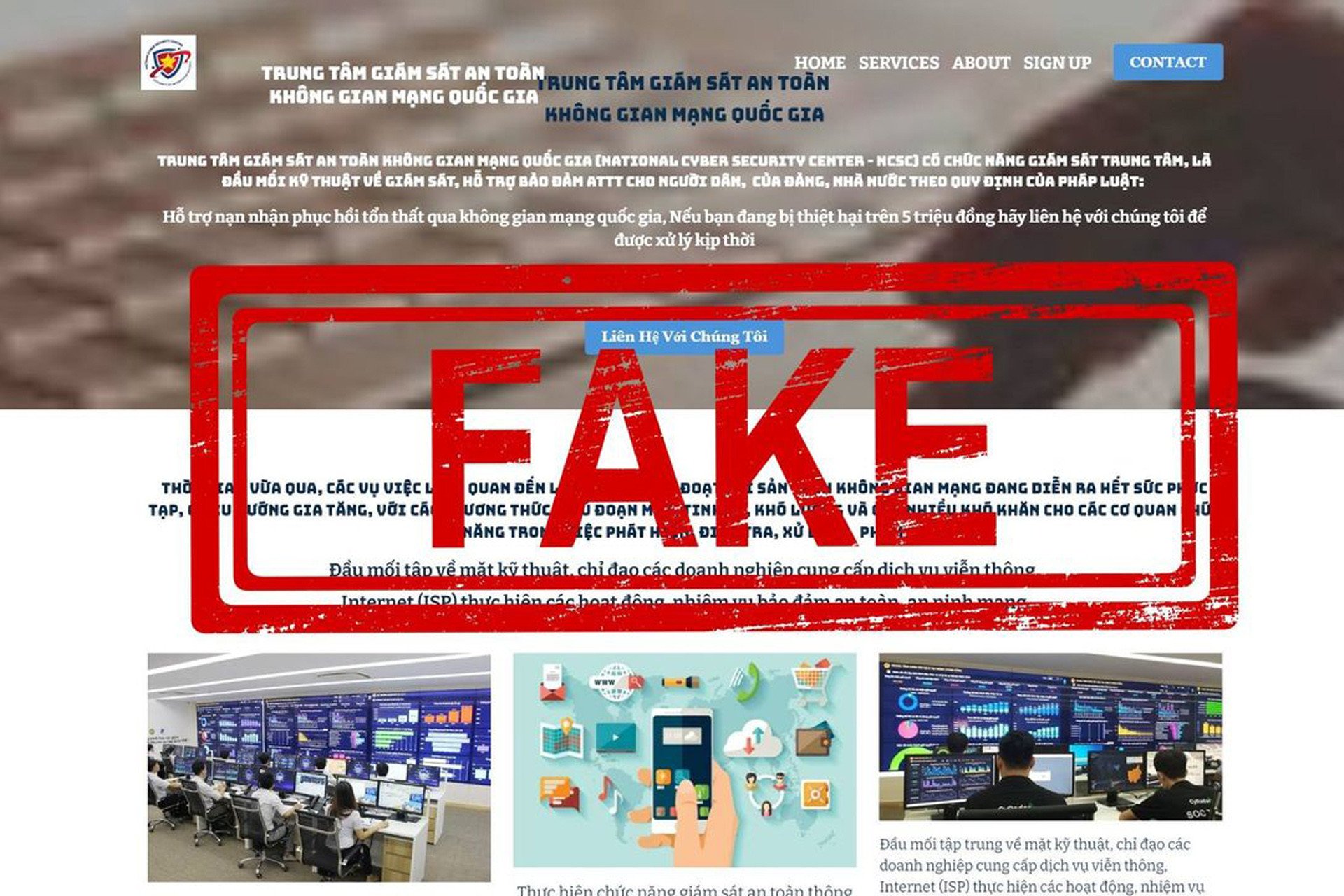
Impersonating the National Cyber Security Monitoring Center website to scam
Source










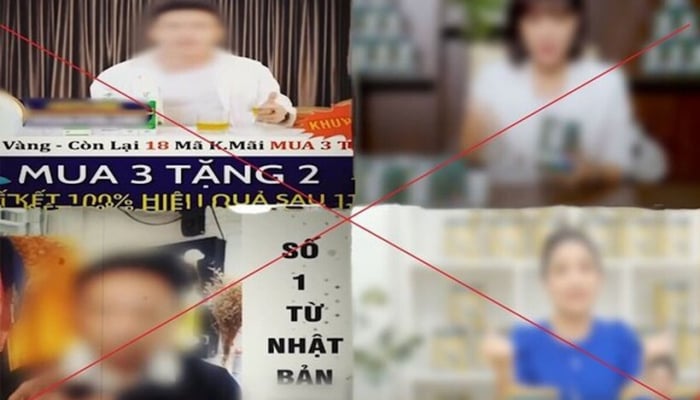


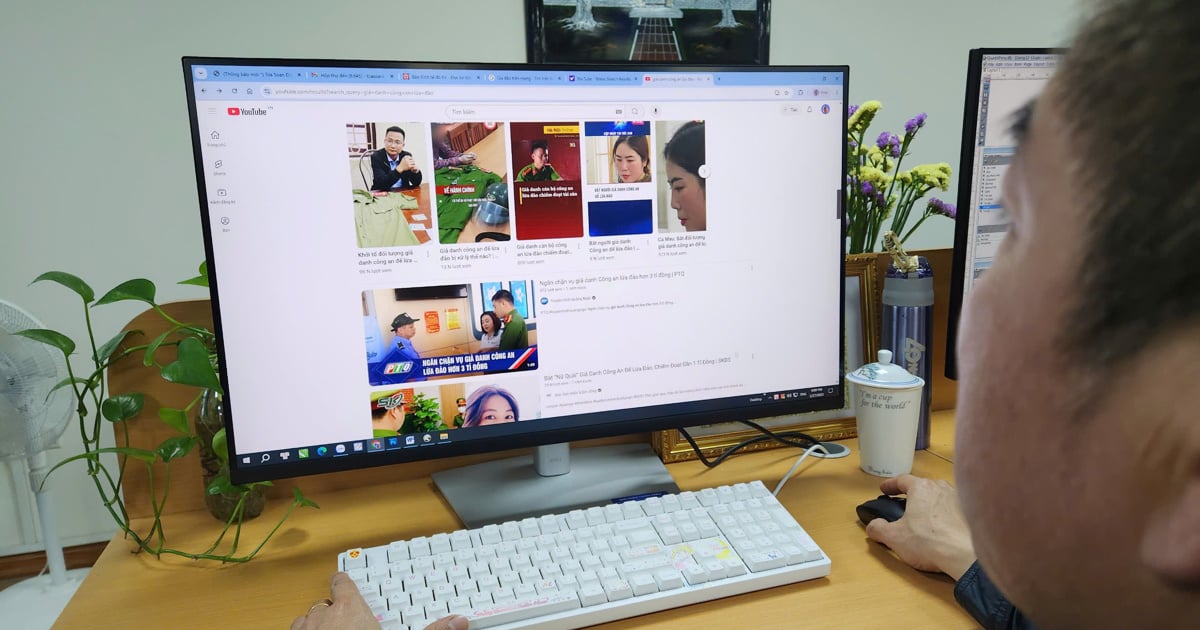










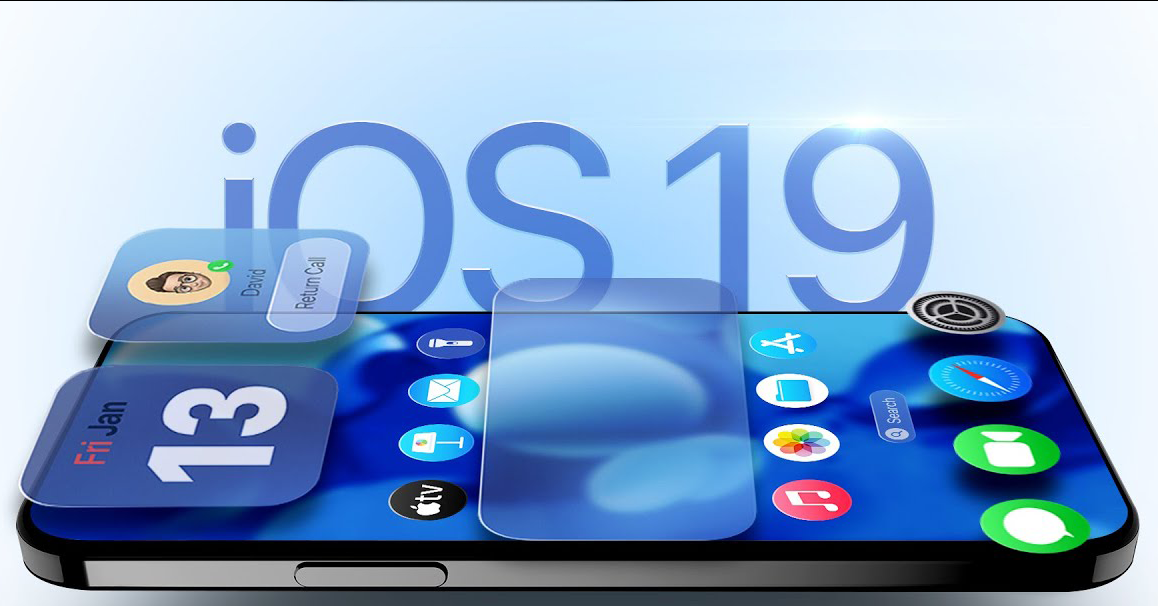





































































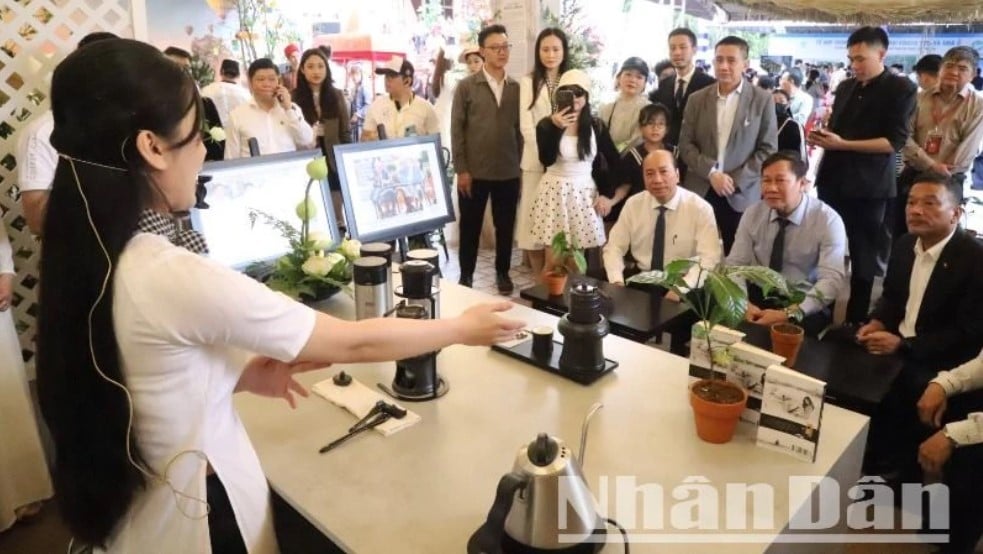

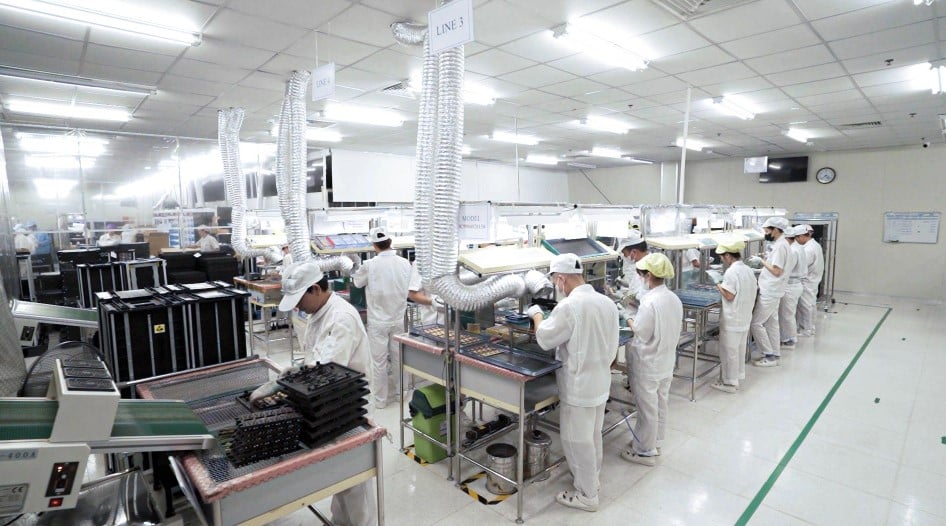
Comment (0)